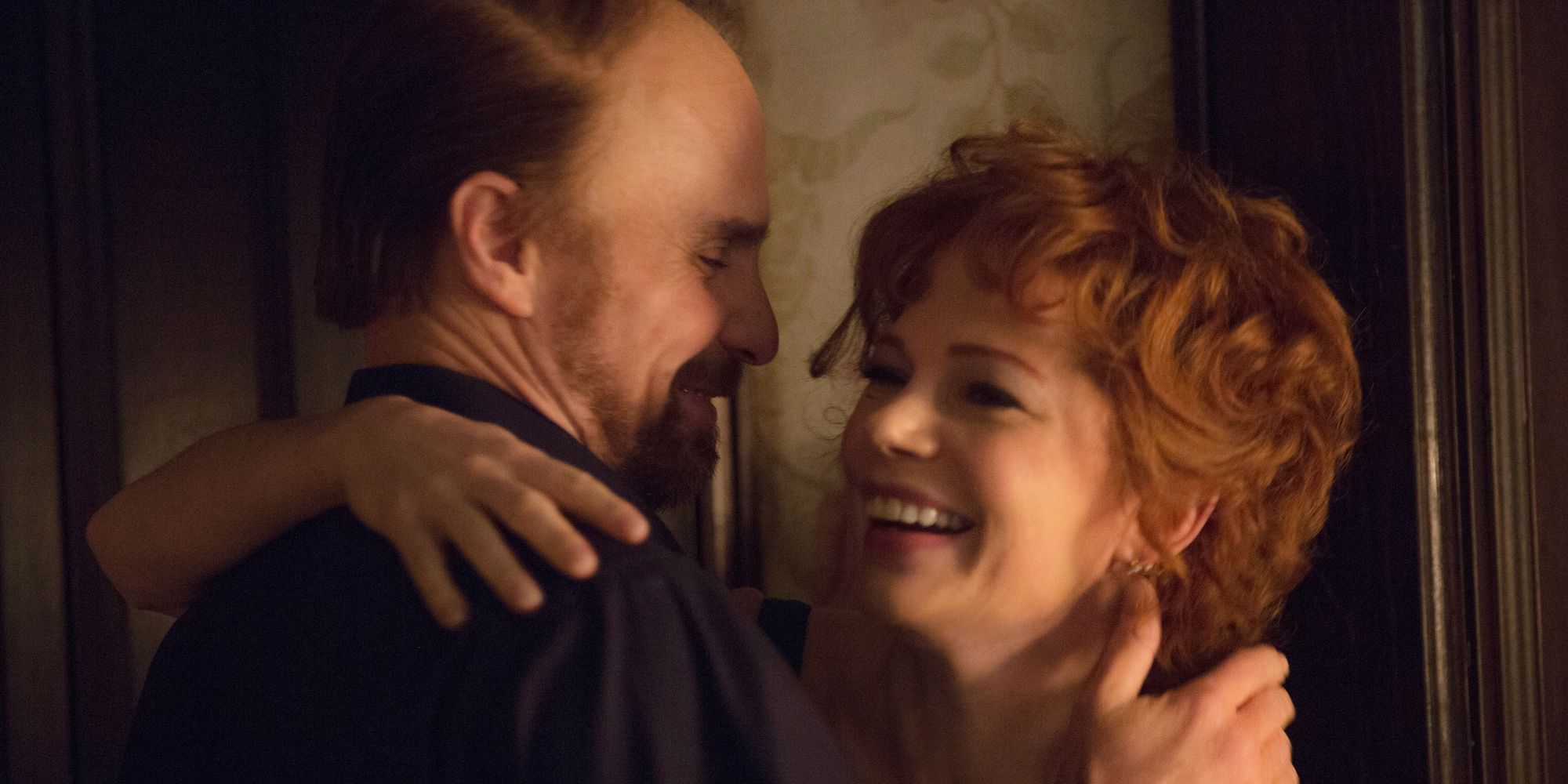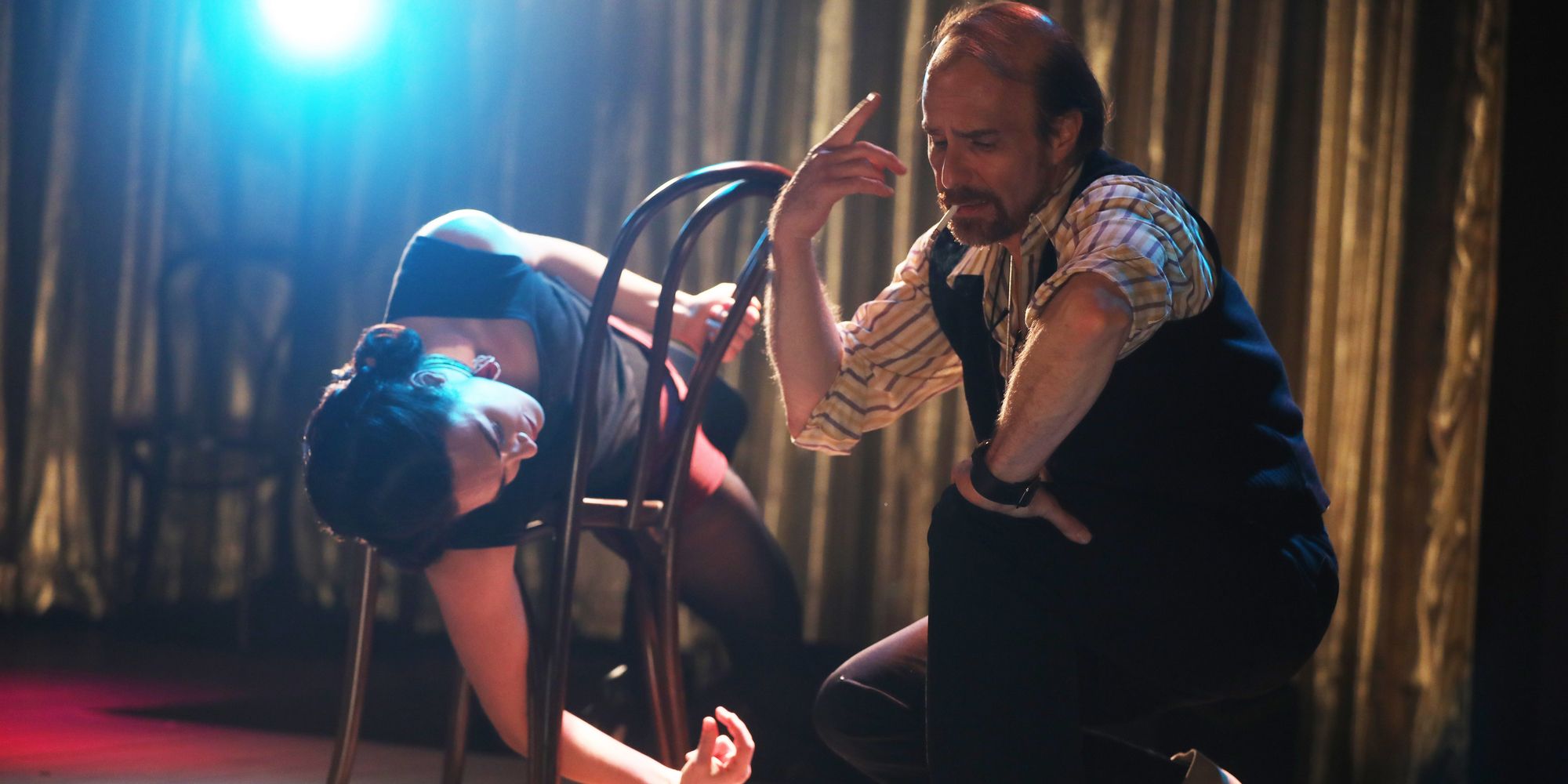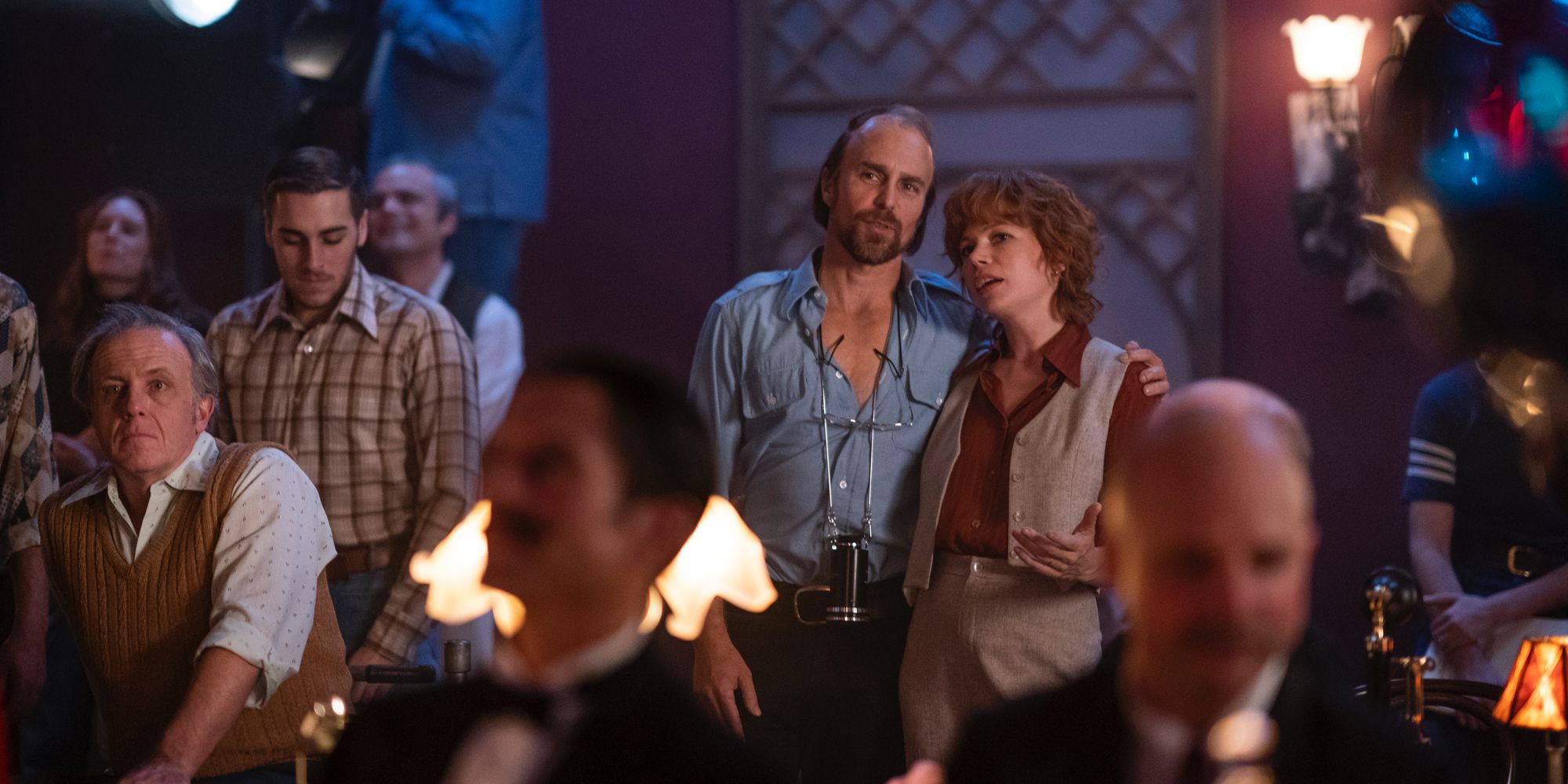There’s a sense that, aside from the obvious appeal of having award-winning movie stars headlining its impressive cast, Fosse/Verdon represents the future of FX’s original series output. A lavish miniseries that not only attracts talent like Sam Rockwell and Michelle Williams in front of the camera, but also an impressive team behind it that includes Lin-Manuel Miranda and Thomas Kail of Hamilton fame, as well as The Americans’ Joel Fields and Steven Levenson of Dear Evan Hanson.
Fields’s domestic espionage experience aside, that creative ensemble is indicative of the kind of miniseries Fosse/Verdon aims to be, as it so readily delves into the world of Broadway musicals and the kinds of song-and-dance spectacles Bob Fosse (Rockwell) was celebrated for making and Gwen Verdon (Williams) was renowned for performing in that you’d be forgiven for thinking the show was a segment during an Oscars telecast.
More: Warrior Review: Cinemax Unleashes A Pulpy Martial Arts Period Drama
But as the title suggests, the series isn’t entirely interested in revisiting moments from the likes of Cabaret or Chicago or Damn Yankees, but is, more often than not, invested in the creative and intimate conflicts of its two leads. The interplay between Fosse and Verdon is equally captivating whether the pair is wrapped up in choreography or some otherwise banal domestic circumstance. In that sense, the aim of the miniseries is to explore the ins and outs of a successful, albeit tumultuous, creative partnership, one that spilled out past the stage and screen to fill the personal lives of two creative geniuses. The rub, then, is in how Fosse would be celebrated for his difficult brilliance, while Verdon would become the unsung woman behind the man.
Although it spans decades long before the #MeToo movement, the story is the ideal set up for a miniseries in 2019 as it explores the decidedly bad behavior that preceded, followed, and sometimes exacerbated the ups and downs of Fosse’s storied career. The only problem, then, is that although it starts off with the intention of striking a deserved balance between its two leads, the series eventually struggles to keep both sides on an even keel, shifting eventually and seemingly inevitably into a familiar song and dance about a gifted but temperamental and exhausting man.
The narrative structure of Fosse/Verdon keeps the story from becoming too mired in the sort of antihero antics that might otherwise have derailed it. Instead, by moving backwards and forwards in time, shifting its focus to different moments from their careers and personal lives — both with and without one another — the series manages to compress decades worth of blood, sweat, and tears into a comprehensive storytelling package that pulls off the nifty trick of making it feel as though the viewer is getting the whole story at once. This non-linear approach affords the series a chance to take some creative licenses, offer a dash of necessary and expected flash to the production, and to let Rockwell and Williams show off their own proficiency when it literally comes time to dance.
Those moments, like an early depiction of Fosse directing a scene from Cabaret, and later, when a fantastical sequence finds him inserted into one of the film’s signature musical numbers, effectively jazz up what increasingly begins to feel like mundane biopic territory. Verdon has her moments, too, though they become noticeably thin as the series progresses. Instead, Williams finds herself moving in and around the edges of the story as her onscreen husband begins a relationship with numerous other women, most notably, Ann Reinking (Margaret Qualley), who would go on to star opposite Roy Scheider in Fosse’s Oscar-winning, semi-autobiographical All That Jazz. As the story focuses more and more on Fosse’s various romantic and interpersonal relationships outside of the one he shared with Verdon, the series begins to look and feel more like something the world's seen before, a shortcoming that’s all the more apparent when compared to the likes of Fosse’s own approach to similar material.
Of the episodes made available to critics ahead of the premiere, Fosse/Verdon leans more heavily into the trials and tribulations of the first half of its dynamic duo than the title might suggest. There are still some brilliant and exuberant (and painful) moments dedicated to Verdon, and perhaps there will be more as the miniseries pushes forward into its final few chapters. Still, regardless the outcome of that as-yet unanswered question, the series may wind up feeling too much like standard biopic fare, when it appeared poised to become something so much more.
Next: Killing Eve Review: Still Worth Obsessing Over In Season 2
Fosse/Verdon continues next Tuesday with ‘Who’s Got the Pain?’ @10pm on FX.



